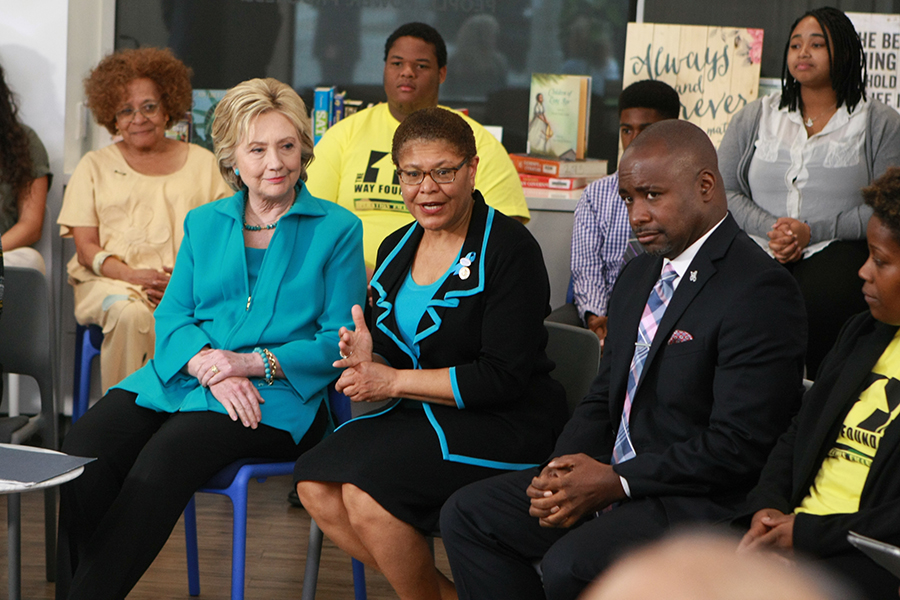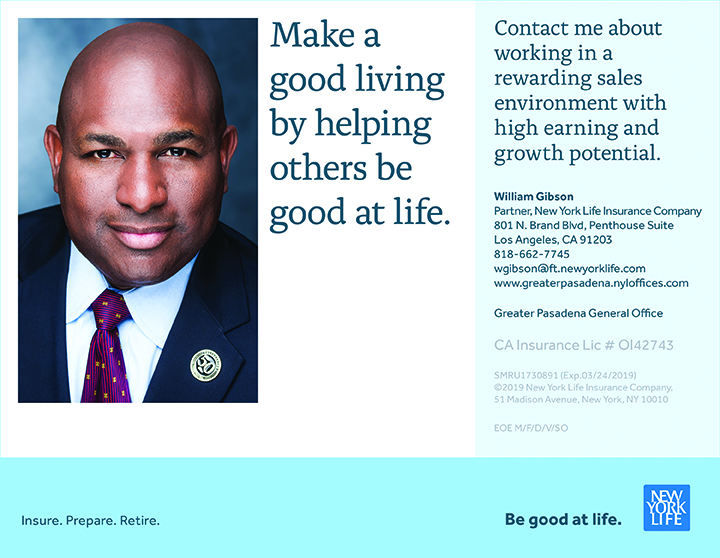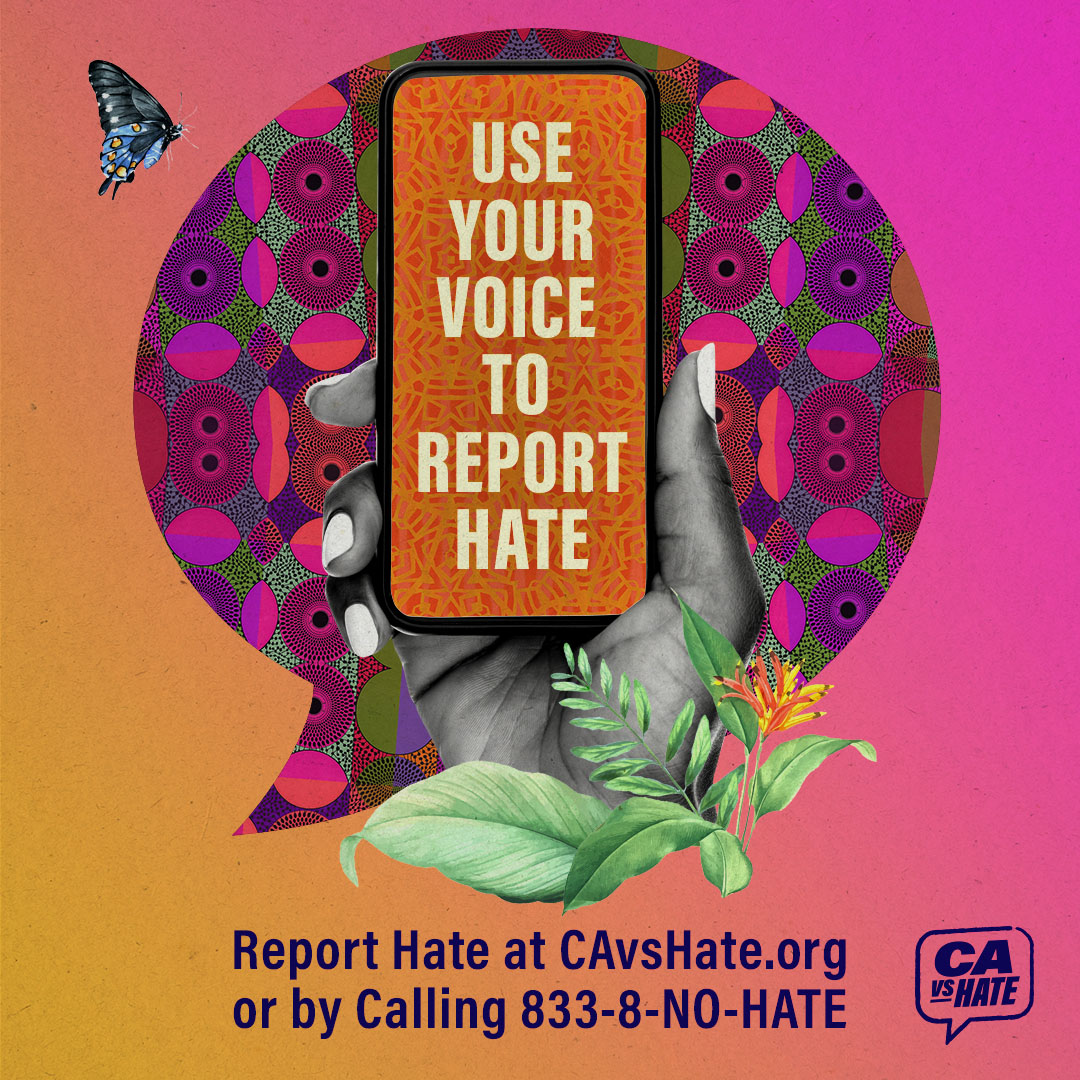Local politicians weigh in on the mass incarceration bill, the housing issue, and President Trump’s revitalization council.

Los Angeles City Council President Herb Wesson.
By Jason Lewis
First Step Act - Criminal justice reform
Criminal justice reform has finally taken one step in the right direction.
“For so many years we have suffered in this country over mass incarceration,” said Rep. Karen Bass. “There are more people incarcerated in the United States than any other country in the world. It hasn’t solved any of the problems that it was meant to solve.”
This bill will affect many people and families in the greater Los Angeles area.
“Anything that deals with incarceration will impact South Los Angeles, because the majority of the incarcerated people in our county come from South L.A. and East L.A. So it means that there are people in South L.A. who are in federal prison who might be able to come home early, or might benefit from some of the other provisions.”
The First Step Act was signed by President Donald Trump on December 21, 2018, and it will take a modest step toward changing the federal criminal justice system. This bill will affect the roughly 181,000 federally imprisoned people in this country (roughly 1.9 million people are incarcerated in state prisons and county jails around the nation, and they will not be impacted by this bill).
This bill will take several steps to ease mandatory minimum sentences under federal law.
“Looking at sentencing laws, we needed to give discretion to judges, as opposed to a mechanical law which said that if you do such and such, you automatically get these years, and nothing can be taken into context,” Bass said.
The First Step Act will go a step beyond the Fair Sentencing Act of 2010, which reduced the huge disparity in punishment between crack cocaine, which Black drug users tended to use, and powdered cocaine, which White drug users tended to use. The First Step Act would make the reform retroactive, affecting crack cocaine offenders who were convicted prior to 2010.
“This means that there never should have been a disparity between the two,” Bass said.
The bill will increase “good time credits” that inmates can earn, allowing many prisoners to cut time off of their sentences.
Inmates will also receive “earned time credits” by participating in more vocational and rehabilitative programs, so they are incentivized to better themselves. Studies have shown that rehabilitation is more effective than punishment. The U.S. prison system has emphasized punishment, leading to roughly 75 percent of inmates to become reoffenders within five years of being released from prison. Norway, which puts more of an emphasis on rehabilitation, has a recidivism rate of only 20 percent. This is important because more than 90 percent of current prisoners will eventually be released, so communities are safer when inmates are rehabilitated instead of punished.
“It’s not enough to just let people out of prison,” Bass said. “What happens when they get out? What are they going to do? Where are they going to live? Where are they going to go?”
The act encourages greater reliance on halfway houses and home confinement as less costly alternatives to prison and essential steps toward reintegrating former inmates.
This bill received support from both sides of the aisle.
“We had one of those rare opportunities where Democrats and Republicans, very conservative people and very liberal people, all come together and sat at the table from different vantage points,” Bass said. “My conservative colleagues were sitting here because they think it’s a waste of money. Colleagues from the Congressional Black Caucus were at the table because we bear the brunt of mass incarceration.”
Bass passionately worked on a specific area of this bill.
“A particular piece of First Step that I was involved in was the piece that bans a human rights abuse, which is the shackling and chaining of pregnant women,” she said.
While this is a first step in the right direction, it does not make a major impact on the criminal justice system, because the bulk of the people incarcerated or going through the court system are not doing so on a federal level, but on a state or county level. Bass pointed out that state laws have influenced federal laws, and vice versa, so there will be more steps in the future.
Housing crisis
This past November, Proposition 10, which was a rent control initiative, failed by a fairly large margin. Nearly 60 percent of voters opposed a proposition that would have allowed local governments to adopt rent control on any type of rental property.
The wide margin of the vote was somewhat surprising, because many people have been complaining about the large rent increases over the last few years. Protesters have claimed that landlords are price gouging tenants, and Los Angeles ranks third in the nation in rent growth. The average monthly apartment price in the city is $2,461. Recently in Inglewood, residents and business owners protested the large rent increases around Hollywood Park.
Los Angeles City Councilmember Marqueece Harris-Dawson (District 8), along with the entire city council, endorsed Proposition 10. While the measure failed, he pointed out that there are still efforts being made to create affordable housing.
“There are two sides to the housing problem in California,” Harris-Dawson said. “One of the sides is price, but the other side is supply. The state passed two bond measures that I think will dramatically increase our ability to build affordable housing in Los Angeles and beyond. We already have the HHH program, which is now coming into fruition in terms of units actually opening up. And we have measure JJJ, so you’ll see a number of transit-oriented communities come online, where there will be affordable housing in those. On the building side, I think that we’re doing good. The investment is there, the will is there, and the projects are there. I think that we’re going to have to revisit the pricing side later.”
Measure HHH, which passed in the city of Los Angeles in 2016, creates housing for the city’s homeless residents. Measure JJJ, which was also passed in the city in 2016, sets affordable housing mandates near transit stops.
The Democrats taking over the House of Representatives may help the local housing issue.
“I think that the Democrats taking back the house is very important,” Harris-Dawson said. “One of the things that’s held up our HHH program is that the federal government just hasn’t been there on funding supportive housing or funding affordable housing, or funding much of anything at all. The Democrats are now able to force the Republicans to the table and make a deal. That’s going to be a big win for Los Angeles, California, and cities around the country.”
President Trump creates a program to encourage real-estate development in low-income areas
President Donald Trump has established The White House Opportunity and Revitalization Council, which is designed to encourage public and private investment in urban and economically distressed areas, including qualified opportunity zones.
The legislation allows investors to defer taxes on capital gains if they're invested in a real estate project or business located in one of nearly 9,000 qualified census tracts. Any capital gains from those investments will be untaxed if they're held for more than 10 years, a tax giveaway worth $7.7 billion through 2022, according to the Joint Committee on Taxation.
On one hand, this appears to be a step in the right direction for lower-income areas, but on the other hand, the worry is that this is just another tax break for the rich, and that it can aid in gentrification. Many people worry that this program is tailored to real-estate developers instead of low-income communities. Among those who have moved to take advantage of the program are close Trump allies and even members of his own family.
Local politicians are monitoring this program.
“The White House Opportunity and Revitalization Council is less than a month old so we’ll see what they do,” Bass said. “No matter what, my hope is that the Treasury Department issues regulations that make sure this program is not just a windfall for investors. These are ultimately taxpayer dollars and they should lead to long-term benefits for communities in the greatest need.”
"Opportunity zones will be impactful tools to promote investment in our communities, as long as the well being and interests of residents remain the program's guiding forces," said Los Angeles City Council President Herb Wesson. "I'm looking forward to seeing how they impact areas of Los Angeles where attracting innovative, stable jobs is a top priority."













